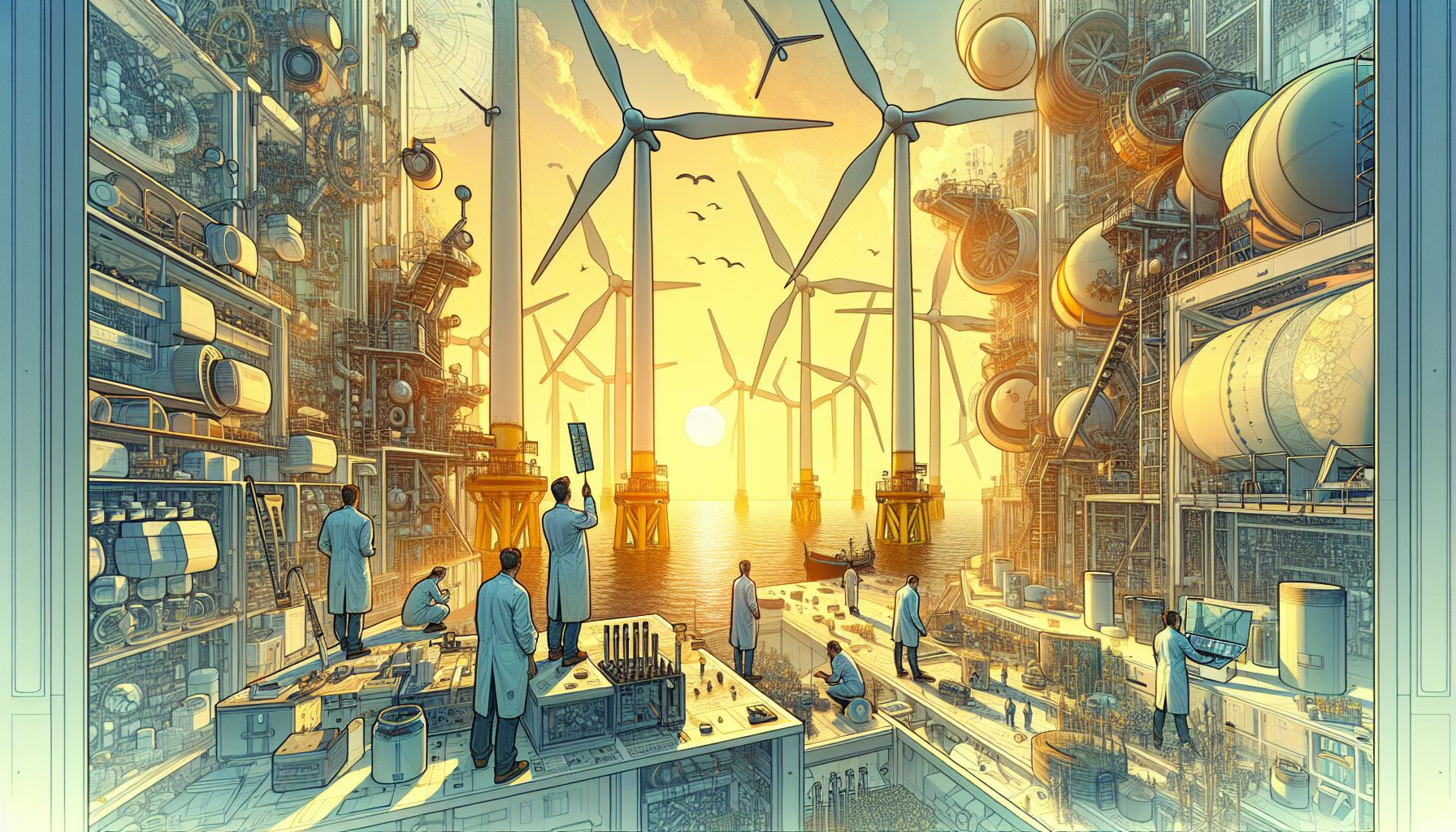TU Delft Pioneers Offshore Wind Efficiency with Innovative Research

Delft, Wednesday, 10 July 2024.
TU Delft’s cutting-edge research aims to revolutionize offshore wind energy. Scientists explore lighter materials, smart designs, and improved maintenance processes to boost efficiency and reduce costs. The groundbreaking work could accelerate the global transition to sustainable energy sources.
Innovative Materials and Designs
At the heart of TU Delft’s pioneering efforts are advanced materials and innovative designs aimed at enhancing the efficiency of offshore wind turbines. The research focuses on using lightweight composite materials, which are crucial for reducing the weight of turbine blades while maintaining their strength and durability. This development not only decreases the material costs but also improves the overall energy output by allowing for larger and more efficient blades.
Efficient Maintenance and Integration
Another critical aspect of the research is optimizing maintenance processes to ensure the longevity and reliability of offshore wind installations. By developing smarter designs, the researchers aim to minimize downtime and maintenance costs. Additionally, better integration of wind energy into existing electrical grids is being explored, which could significantly streamline the process of transitioning to renewable energy sources.
Floating Wind Energy Technology
One of the most promising areas of research at TU Delft involves floating wind energy technology. According to Professor Axelle Viré, who delivered an inaugural speech in February 2024, this technology could radically scale up the use of offshore wind energy. The HybridLabs consortium, led by Viré, focuses on interdisciplinary collaboration to drive innovation in this field. The consortium was officially launched during her speech, marking a significant milestone in the journey towards sustainable energy solutions.
Quantum Computing in Composite Design
In a complementary effort, TU Delft researchers are leveraging quantum computing to solve complex problems in the design of fibre-reinforced composite materials. This breakthrough could lead to more efficient and robust turbine blades. The QAIMS team at TU Delft has advanced to the final rounds of the Airbus-BMW Quantum Computing Challenge, showcasing the potential of their approach to enhance the mechanical properties of composite materials used in wind turbines.
Global Impacts and Future Prospects
The implications of these research initiatives extend far beyond the Netherlands. By improving the efficiency and reducing the costs of offshore wind energy, TU Delft’s efforts could play a pivotal role in global energy transitions. The positive market outlook for wind energy, particularly in Europe, further underscores the importance of these innovations. With continued advancements in technology and interdisciplinary collaboration, the future of offshore wind energy looks promising.

